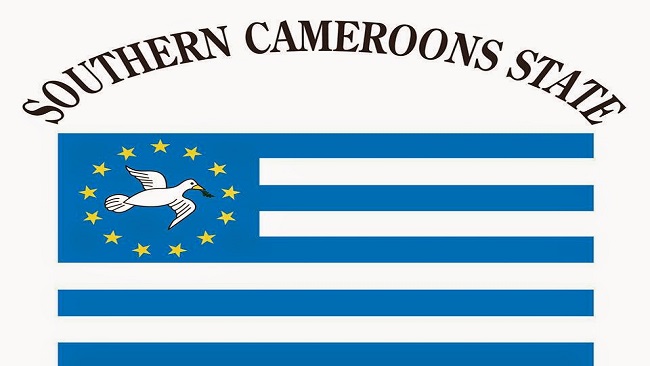Release of Anglophone detainees and Suspension of Ghost Town: All good faith towards meaningful dialogue
The 83 year old Cameroonian dictator has indeed wagered his legacy on the possibility of national unity. He is not the first Cameroonian head of state to do so, but Tuesday’s release of only 24 of Southern Cameroons freedom fighters has made it clear that the ongoing talks will not make any greater headway. Many among the 24 were sexually molested, tortured and humiliated. Many are still missing.
The many signals coming from different segments of the Biya regime makes it almost impossible for anyone to bet on how Yaoundé intends to end this 55 years internal conflict in Cameroon. To be accurate, the Biya Francophone Beti Ewondo regime runs a military much improved by French and U.S. hardware, training and intelligence cooperation, in pursuit of victory against the Nigerian Islamic sect, Boko Haram.
Ever since 2016 when the Anglophone Spring started, Biya has beefed up and deployed the coercive institutions of La Republique du Cameroun to improve the government’s position on the battlefields in Kumba, Buea, Bamenda and Kumbo in order to re-establish La Republique’s authority— often in collaboration with Southern Cameroons political elites and at the cost of respect for human rights.
But the Cameroonian leader who is slowly but surely losing the Anglophone section of the country would do well to look back to what former Governor David Abouèm à Tchoyi made public recently. The former experienced civil administrator noted that six facets should and must be addressed:
1- Criticism of the centralized power.
2- The transfer of the decision-making centers to Yaoundé, far from the populations and their problems.
3- Failure to respect commitments to equitably take into account the institutional, legal and administrative cultures and traditions inherited from the former administering powers.
4- Non-compliance with the solemn promises made during the referendum campaign.
5- The change of the name of the State: replacement of “the United Republic of Cameroon” by “the Republic of Cameroon”.
6- Non-respect of bilingualism in the public sector, although the Constitution makes French and English two official languages of equal value.
Every Southern Cameroonian is very aware that these are the points that the Cameroon Anglophone Civil Society Consortium wants to discuss with Biya and his Beti Ewondo government. We of this publication are wondering why Ghogomu Mingo and the other members of the so-called Ad Hoc Committee are still gambling on negotiating peacefully with the Consortium.
Biya’s dubious peace efforts with the Cameroon Anglophone Civil Society Consortium have coincided with poor security performance, alleged bribery and corruption of Anglophone opinion leaders and popular demands for a Southern Cameroons State. There is no hope for Biya and his ruling CPDM crime syndicate to chart a new path for Cameroon’s political and economic future.
The Biya-Francophone peace effort has already failed dramatically and it is coming to a definitive end as the Consortium will now be asking for missing children and justice for those killed in Kumba, Buea, Bamenda and Kumbo. Even with the negative distractions coming from Prime Minister Philemon Yang and his gang of secretaries passing for cabinet ministers, the two sides have never made any advancement in the dialogue.
Many issues are involved. Minister Fame Ndongo who is Paul Biya’s eyes and ears in the CPDM Ad Hoc Committee wants to negotiate from a position of military superiority of La Republique. Before starting negotiations—and even before opening the talks—Fame Ndongo and other Francophone members of the Biya Francophone team quietly turned to Ghogomu and ordered him to read a text in the French language. The Ad Hoc Committee blatantly refused to include South Westerners into the dialogue but later came back and added a sea of South West citizen. Minister Atanga Njie described the lawyers as coming from an obscure organization!! His Prime Minister turned around and met with the lawyers.
The behavior of highly placed Cameroon government officials during this recent Anglophone crisis has indicated that La Republique du Cameroun is badly in need of internal reforms and professionalization. Cameroon will only remain one and indivisible with a durable peace only if Paul Biya meets with the real Southern Cameroons leaders who are in the Cameroon Anglophone Civil Society Consortium.
Discussions on such a forum should be frank, candid and thoughtful and should not only focus on strengthening state institutions but also adopt and immediately implement new political reforms such as those in the 1961 Federal structure that would be effective, efficient, and accountable and that can deliver healthcare, education, infrastructure, and economic development. In many rural and urban areas of Southern Cameroons, these aspects of the Republic of Cameroon state are not just weak, they don’t even exist.
The Francophone dominated government has not gained anything after responding aggressively. Instead it now appears weak. Persons arrested in Bamenda during the protests are being released from the Yaoundé central prison in Kondengui. Upon arrival in Bamenda, those painted as extremists and manipulators by Paul Biya were received by a Francophone Governor of the North West Region, Adolphe Lele L’afrique. Their release was one of the two main conditions presented by the disgruntled teachers at the end of the first session of the Ad Hoc Committee meeting chaired by Professor Ghogomu Paul Mingo.
The Francophone government now thinks they can manipulate national and international public opinion by stating that meaningful dialogue can go ahead as two conditions have been met. Government’s release of some of the Anglophone detainees and the inclusion of South Westerners into the dialogue is indeed a show of good faith. By suspending the civil disobedience campaign, the Consortium too showed good faith towards the regime. The regime now understands that it is no longer teachers and lawyers’ demands——it is the political future of British Southern Cameroons. Let meaningful dialogue now begin.
By Soter Tarh Agbaw-Ebai
Editor-in-Chief
Cameroon Concord News Group





